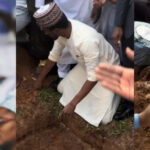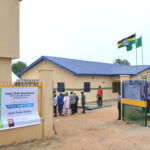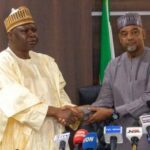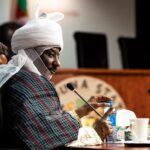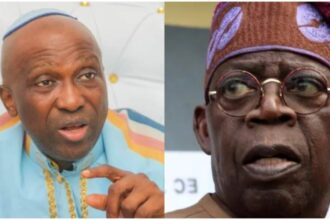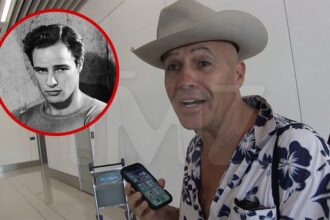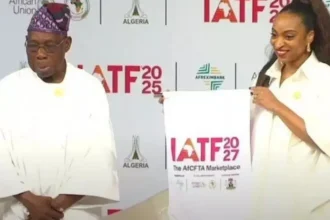
*Remarks of EFCC Chairman, Ola Olukoyede,
at a Stakeholders Sensitisation Programme on Naira Abuse on Friday…in Lagos.
It is my pleasure to speak to you all today on an issue that affects all of us. This has to do with the way we handle our national currency – the naira. Naira is not only a means of exchange; it is a symbol of our sovereignty; its value and integrity affect our economic well-being.
Over the last one year, the Commission has been in the vanguard of the efforts to stabilise and restore the integrity of the naira. Working in close concert with the Central Bank of Nigeria, we took bold measures, including establishing a Task Force on Dollarization and Naira Abuse to address some of the practices that threaten the value of the currency such as racketeering and illegal trading in forex by unlicensed bureau de change operators.
We also embarked on vigorous public enlightenment and enforcement of the law against abuse of the naira, including mutilation, stamping, spraying and other abhorrent practices. While consciousness about proper handling of the naira has improved a little, public misconception regarding the campaign against naira abuse is still rife. People claim naira spraying is part of our culture, while others query our focus on naira abuse over other so- called high crimes.
Distinguished guests, there is nothing cultural about spraying and stamping on the naira or throwing wads of the currency in the air at social events. Nowhere in the world is such despicable practice tolerated. Nobody who works hard to earn money will go to social events to throw and stamp on the currency. As a salary earner myself, it is unimaginable for me to go out and start throwing my hard-earned salary in the air! I believe this sentiment applies to everyone who genuinely earned his or her money.
The EFCC is mandated to enforce all economic and financial crimes law in Nigeria. Abuse of the naira and invoicing in foreign currencies for local transactions are criminalised by sections of the CBN Act and the Foreign Exchange Malpractices Act. The EFCC will be failing in its statutory responsibility by swaying to the archaic sentiment of a Nigerian Spraying Culture. An offence is an offence and ignorance of the law is never an excuse. Some of the celebrities who have been charged to court on account of this infraction can attest to the weight of the offence and the wrath that awaits offenders.
What critics do not realise is that the Central Bank spends huge resources in managing the currency whose shelf life is reduced through abuse. Yet, sensitisation by the EFCC, the CBN and other regulators cannot wipe off this abhorrent practice. We require an all-of-society approach in dealing with this malaise. As entertainers, whether you are a musician, actor, comedian, etc., you have a role to play. Next time you mount that stage to perform, let one of your opening routines be a message to your fans not to pray or stamp on the naira as it is an offence to do so. We all must lend our voices to this national campaign to restore the integrity of the naira, which is a symbol of our sovereignty and economic might.
Ladies and gentlemen, the focus of the EFCC under my watch has significantly been about how to use the instrumentality of the fight against corruption to strengthen the economic recovery programmes of the Bola Ahmed Tinubu administration. This focus inspired a review of our operational protocols to protect going concerns under investigation to save jobs and investments. Unlike in the past when businesses under investigation were shut, we now exercise greater restraints in wielding the stick. In addition, there is greater commitment to asset recovery and committing the proceeds of crimes to funding critical social investment programmes with direct impact on the living condition of the most vulnerable population.
Two of the signature programmes of the Tinubu administration that have benefitted from proceeds of crime are the students loan fund- Nelfund and the consumer credit scheme, Credicorp. One Hundred Billion Naira in recovered proceeds of crimes was committed to both programmes.
Aside from this, the commission has assisted a number of government agencies to recover otherwise stolen funds that have now been ploughed back to fund socially relevant programmes. The example of the NDDC is significant here. Funds recovered for it were deployed by its management to fund a skill acquisition centre and construct a liaison office complex in Yenagoa, Bayelsa State. Both projects were recently commissioned for the use of the people of the Niger Delta region.
In the Northwest, Nok University, a property recovered from a former director in the Civil Service, is now the Federal University of Applied Sciences in Kachia, Kaduna State. Beneficiaries of the Commission’s assets recovery efforts also included state government, corporate organisations and individuals. The EFCC has equally bought succour to many foreign victims of fraud originating from Nigeria by restituting victims of such crimes in the United States, Spain and Canada, among others.
However, it is important to inform this audience that we have discovered a pattern of criminality in recent times involving foreign fraud syndicates establishing cells in Nigeria and recruiting young Nigerians as predators for online romance, investment and cryptocurrency fraud. Two notable operations in Lagos and Abuja exposed a large number of foreigners setting up and operating organised fraud syndicates in Nigeria. The first one in Lagos led to the arrest of 792 suspects. As I speak, we have arraigned and successfully prosecuted over 150 suspects, most of them Chinese.
More than ever before, we are determined to clean Nigeria of the activities of fraudsters and make our economy attractive to investors. The improved confidence that our international partners show in our capacity and their willingness to collaborate with us is clear indication that we are hitting the right notes.
We are also not relenting in the investigation and prosecution of those who steal from our national till. As I speak, we have four former governors and three former ministers under prosecution for various corruption offences. These politically-exposed persons were investigated and charged in the last one-and-half years of my tenure as Chairman of the EFCC.
Within the same period, I established a Department of Fraud Risk Assessment and Control, FRAC, to deploy a risk-based approach in preventing corruption in ministries, departments and agencies, MDAs. In addition, we have various programmes of sensitisation on radio and television, as well as a weekly tow hall on X-spaces to enlighten and educate the people on the ills of corruption.
15. Moreover, for those of you who do not yet know, the EFCC owns and operates an anti-corruption radio, EFCC Radio 97.3fm in Abuja. I am aware that the signal do not get to you in Lagos but technology has made life a lot easier for all of us. You can listen to live streaming of our broadcast through the EFCC website, www.efcc.gov.ng
16. Finally, I want to, once again, appreciate all of you for responding to our invite and expect a robust and frank conversation over the next few minutes. We will continue to engage with you all until we achieve the ultimate goal of a corruption-free Nigeria.
I thank you for your time.




